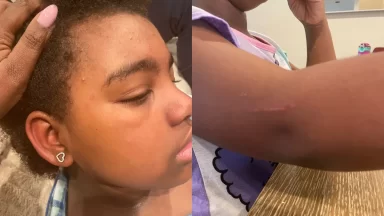A federal appeals court ruled that a law in South Carolina making it a crime for children to be “boisterous” or “obnoxious” at school is unconstitutional,
The U.S. Court of Appeals for the Fourth Circuit ruled on Feb. 22 that the law deprives students of their 14th Amendment due process rights.
The three-judge panel’s ruling comes seven years after an incident at Spring Valley High School in Columbia, South Carolina, back in 2015. School Resource Officer Ben Fields violently pulled a Black student out of her desk and slammed her to the ground, reportedly over the student’s cellphone use during algebra class. The video went viral and the student who recorded the video, Niya Kenny, was arrested for causing a “disturbance.”

The American Civil Liberties Union backed the Carolina Youth Action Project in a 2016 lawsuit that challenged the state’s “disturbing schools” and disorderly conduct laws. The ACLU argued that the laws allowing for students to be criminally charged for regular teenage behavior such as swearing, loitering, or undefined “obnoxious” actions on school grounds were unconstitutional. The lawsuit also argued against the “disorderly conduct” law, which prohibits students from acting in a “disorderly or boisterous manner.”
Fields was fired from his job as a school resource officer for the Richland County Sheriff’s Department after video surfaced of him slamming a then-16-year-old Black student named Shakara to the ground. Fields was seen using a choke hold on the teen before ripping her from her desk and dragging her out of the classroom.
Fields defended his actions back in 2017 when he told WISTV that he said to the teen, “You know me. You know I’m a fair guy.” Fields continued, “She goes, ‘I don’t know you.’ She was clearly disturbing school at that point in time – disturbing the classroom and the other 20 kids or so that were in the class, and she needed to be removed.”
Judge Toby Heytens of the U.S. Court of Appeals for the Fourth Circuit noted troubling statistics about the state’s prosecution of minors using the law. Heytens wrote that between 2014 and 2020, at least 3,735 kids between 8 and 18 were prosecuted for “school-related” disorderly conduct.



Recent Comments